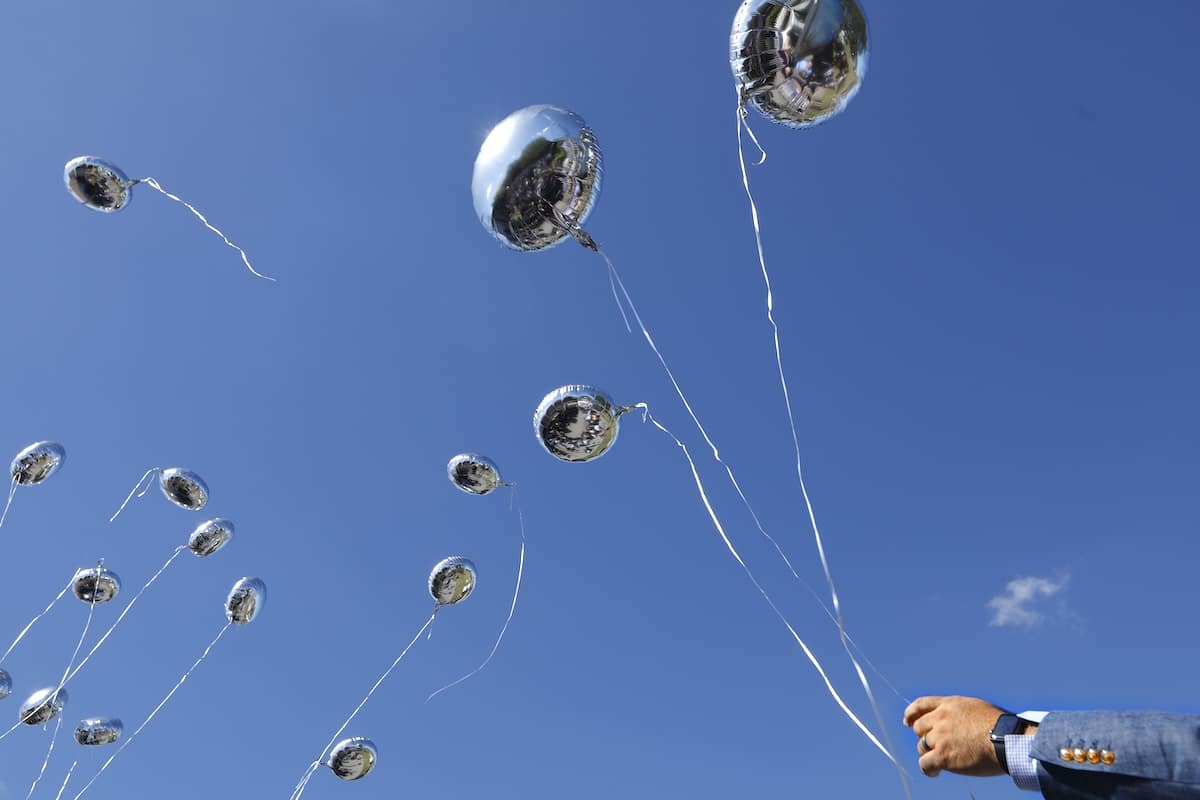Ecowatch
Florida Lawmakers Pass Ban on Intentional Balloon Releases

Balloons released at Parkridge Church in Coral Springs, Florida on Feb. 15, 2018, following a memorial vigil on the day after deadly shootings at Marjorie Stonemason Douglas High School in Parkland, Florida. Carolyn Cole / Los Angeles Times

Why you can trust us
Founded in 2005 as an Ohio-based environmental newspaper, EcoWatch is a digital platform dedicated to publishing quality, science-based content on environmental issues, causes, and solutions.
State lawmakers in Florida have passed a bill, HB321, to ban intentional balloon releases and charge intentional balloon releases as littering infractions.
The bill passed with overwhelming support in the state’s House of Representatives and Senate in March. Now it awaits signing into law by Florida Governor Ron DeSantis.
“What goes up must come down, and when it comes to balloons, that can have deadly consequences for marine life,” Jon Paul Brooker, director of Florida Conservation at Ocean Conservancy, said in a statement. “The ingestion of a single piece of balloon has the potential to kill a seabird, which shows why even one intentionally released balloon is one too many.”
A study by Ocean Conservancy scientists found that about one in three seabirds that consumed just a single piece of a balloon would die from eating that debris.
Ingested balloons can block the digestive tracts of animals or simply keep them from feeling hungry, leading to starvation. Balloons also pose an entanglement risk to wildlife. Balloons are the top cause of marine debris-related death for seabirds, Ocean Conservation Society found.
In Florida, several communities have already enacted local legislation preventing intentional balloon releases, and there were existing state statutes that limited balloon releases. However, there were exemptions that allowed for releasing fewer than 10 balloons per 24-hour period and for releasing balloons considered biodegradable or photodegradable that do not have any strings, ribbons or other attachments, Surfrider Foundation reported.
HB321 addresses these exemptions, removing the release of a specified number of balloons within a certain timeframe as well as the exemptions for biodegradable or photodegradable balloons.
“Florida made the right call today in banning intentional balloon releases. Balloons are one of the deadliest forms of plastic pollution for ocean wildlife,” Hunter Miller, Oceana Field Campaigns Manager, said in a statement. “It’s great to see state legislators from both sides of the aisle come together to support a commonsense bill and get it passed. We call on Governor DeSantis to quickly sign this into law.”
While environmental organizations have praised the passing of HB321, they noted that Florida has much more work to be done in terms of addressing plastic pollution by limiting plastic production.
“These victories are particularly significant in Florida, which has been paralyzed from addressing plastic pollution at the source at the state level for years,” Emma Haydocy, Florida policy manager at Surfrider Foundation, wrote on the Surfrider Foundation website. “While the existing preemption has been the status quo for over a decade, this year’s actions to prohibit balloon releases and the full stop of an attempt to expand and entrench plastic preemption is a leap in the right direction.”
Once signed, the bill is slated to take effect this July 1.
Subscribe to get exclusive updates in our daily newsletter!
By signing up, you agree to the Terms of Use and Privacy Policy & to receive electronic communications from EcoWatch Media Group, which may include marketing promotions, advertisements and sponsored content.
Source
Disclaimer: No copyright infringement intended. All rights and credits reserved to respective owner(s).












